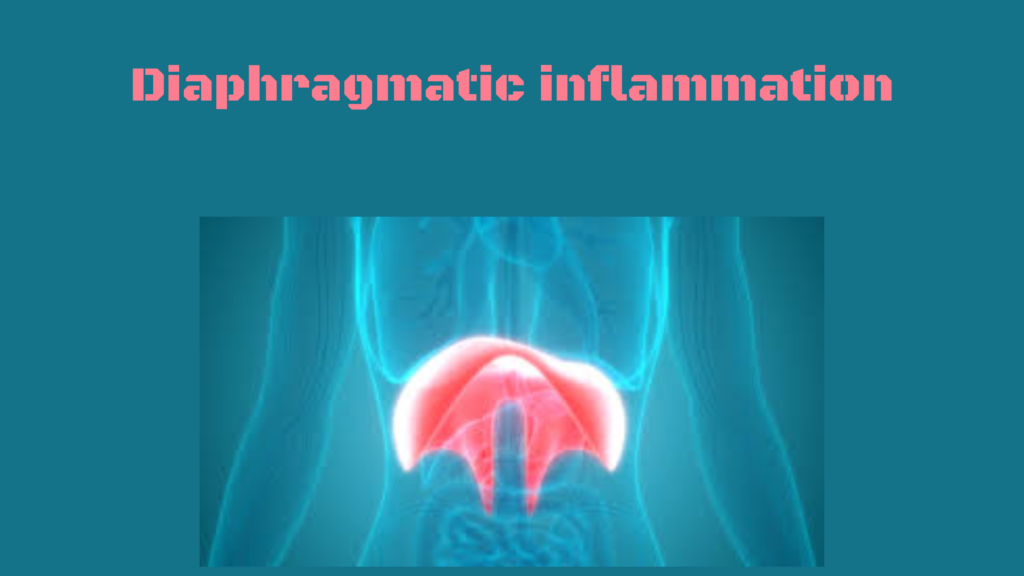Diaphragmatic inflammation, also called diaphragmitis, is a rare condition involving inflammation of the diaphragm muscle. Because the diaphragm is central to breathing, inflammation can cause chest pain, breathing difficulties, and referred pain (especially to the shoulder or upper abdomen).
🔬 What Is Diaphragmatic Inflammation?
- The diaphragm is the primary muscle of respiration.
- When inflamed, it can spasm, weaken, or cause pain.
- It’s not a common standalone diagnosis, but may occur secondary to other conditions.
🔍 Causes of Diaphragmatic Inflammation
🔹 Infectious
- Viral infections (e.g., Coxsackievirus, influenza, herpes zoster)
- Bacterial infections (e.g., tuberculosis, abscess near the diaphragm)
- Parasitic infections (e.g., echinococcosis or toxoplasmosis—rare)
🔹 Autoimmune / Inflammatory
- Systemic lupus erythematosus (SLE)
- Polymyositis or dermatomyositis
- Sarcoidosis
🔹 Trauma or Irritation
- Surgical injury
- Post-abdominal or thoracic surgery
- Adjacent organ inflammation (e.g., subphrenic abscess, liver or gallbladder disease)
🔹 Tumor-Associated
- Metastases or primary tumors near the diaphragm causing inflammation
⚠️ Symptoms
- Chest pain or upper abdominal pain
- Pain worsens with deep breathing or movement
- Shortness of breath
- Referred pain to the shoulder (especially left side) – due to phrenic nerve involvement
- Hiccups
- Fever (if infectious)
🧪 Diagnosis
🧴 Clinical Evaluation:
- History and physical exam (look for pain with deep breaths)
🧪 Imaging:
- Chest X-ray – may show diaphragm elevation or adjacent inflammation
- CT or MRI – for detailed visualization of diaphragm and surrounding structures
- Ultrasound – especially useful in detecting fluid or abscesses
🧫 Laboratory Tests:
- CBC (may show elevated WBCs)
- Inflammatory markers (CRP, ESR)
- Blood cultures or serologic tests if infection suspected
- Autoimmune panels (e.g., ANA, CK) if systemic disease is suspected
💊 Treatment
🔹 Depends on the Cause:
| Cause | Treatment |
|---|---|
| Viral | Supportive (rest, fluids, analgesics) |
| Bacterial | Antibiotics; drainage if abscess present |
| Autoimmune | Corticosteroids or immunosuppressants |
| Traumatic | Pain control, monitor for complications |
🔹 Supportive Care:
- Pain management (NSAIDs, acetaminophen)
- Breathing exercises
- Treat any associated pulmonary or abdominal conditions
🛡️ Prognosis
- Most cases are self-limited if treated early
- Chronic inflammation can lead to diaphragm weakness or dysfunction
- Monitoring is important in patients with autoimmune disease or recent surgery
